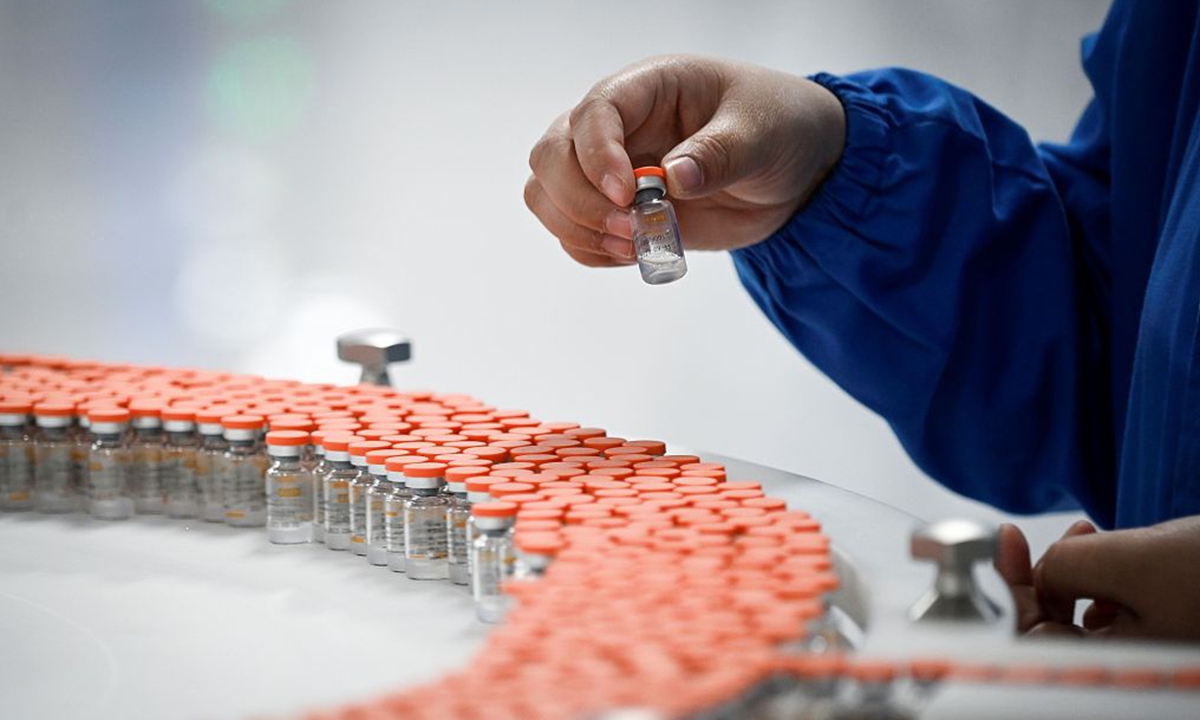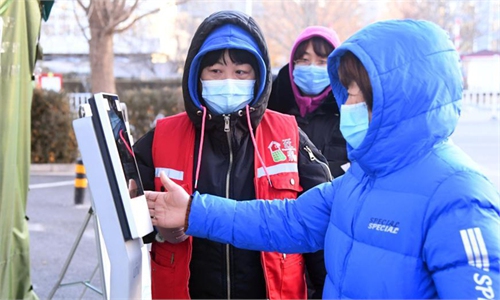Checks on auto parts strengthened after COVID-19 found in Daimler Beijing plant
Unlikely for general public to be infected by contaminated components: epidemiologist

Several cities in China have stepped up scrutiny of auto parts, after the virus was detected on environmental samples collected from a Daimler unit where positive COVID-19 cases have been found previously.
But Chinese epidemiologists said that due to the low contamination level, it is unlikely for members of the public to be infected by the contaminated parts.
At least seven cities have found the virus on samples collected from auto parts or their outer packaging: Hohhot in North China's Inner Mongolia Autonomous Region; Cangzhou in North China's Hebei Province; Jincheng in North China's Shanxi Province; North China's Tianjin municipality; Lianyungang in East China's Jiangsu Province; and Yantai and Linyi in East China's Shandong Province, according to media reports.
On Monday morning, Tianjin authorities announced that they had found the virus in five samples from the outer packaging for auto parts, out of 1,911 samples collected related to auto products shipped into the city. As of 10 pm on Sunday, all tested personnel returned negative results.
However, the strict investigations have made an impact on some of the company's dealerships in China.
Jia Dehua, a manager of customer relations at a Daimler 4S-authorized car dealership in North China's Inner Mongolia Autonomous Region, told the Global Times on Monday that the store sources car parts directly from the Daimler factory in Beijing. "The dealership suspended operations on Friday and is still waiting for the local government's notice to reopen," he said.
According to Jia, about 150 people, including employees and those who came in contact with them, are in quarantine and all have tested negative. Samples from the store environment, as well as the car parts, also tested negative.
Jia's dealership used to have around 100 customers per day, but he said sales have been "very low" over recent weeks.
The stepped-up measures came after COVID-19 was found on auto parts belonging to the subsidiary of Daimler, which is located in the Jinma industrial park in suburban Beijing's Shunyi District. The component company is a warehouse and distribution unit for Mercedes-Benz's after-sales service in northern China, according to media reports.
After testing 8,615 people in the industrial park, 11 people from the auto parts company, and one from BIT HuaChuang Electric Vehicle Technology Co in the park, tested positive for coronavirus. All the others returned negative results, Zhi Xianwei, an official in Shunyi, said at a press conference on Sunday.
In a statement on Wednesday, Daimler Northeast Asia Parts Trading and Services Co said that Daimler is screening its dealership network, and basically ruled out the possibility of the virus being transmitted through imported goods, according to media reports.
Responding to the positive samples detected on auto parts, Wu Zunyou, chief epidemiologist at the Chinese Center for Disease Control and Prevention, told the Global Times it was the infected worker or workers who contaminated the auto parts, rather than contaminated auto parts causing infections.
"The auto parts were neither contaminated abroad nor did they bring the virus to China," Wu told the Global Times on Monday, noting that after workers in Beijing became infected, the contaminated auto parts were shipped to other cities.
"Because of the low contamination level, it is unlikely that members of the public will get infected," Wu said.
Like any items contaminated with the virus, there is a risk of spreading the virus or even infecting humans who had contact with it, if auto parts are contaminated with COVID-19, Yang Zhanqiu, deputy director of the pathogen biology department at Wuhan University, told the Global Times on Monday.
But whether the auto parts could result in large-scale human infections depends on the amounts of virus on the parts' surfaces, Yang said, suggesting that companies should disinfect the contaminated parts.
However, the virologist believed that a full shut-down of the factory is unnecessary, as long as employees who tested positive were quarantined immediately and the company thoroughly disinfected the surfaces of the parts. "If those anti-epidemic measures are well implemented, there shouldn't be more infections."
The industrial park in Shunyi remains closed, with entry and exit restricted, and multiple-frequency, full-coverage disinfection, according to the official in Shunyi on Sunday.

